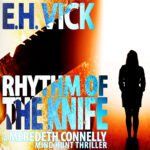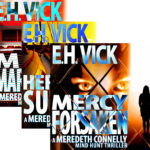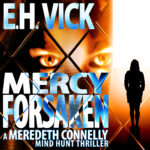
There are a lot of books published that will “tell you how to be a writer.” There’s nothing wrong with them, and I don’t begrudge the authors a thing. Many of them have great insight into the craft and business of writing fiction.
Here’s the thing: I see a lot of aspiring writers jumping from one book to the next, from one method to the next. That’s where the trouble starts, in my opinion.
I’ve read a number of books on the craft in the past — most of them written by one of my favorite authors. I never saw them as recipes. I saw them as tool kits. I read that Orson Scott Card started his novels by drawing a map, so I tried that (not for me). I read the Ben Bova tried to incorporate all five senses in a scene, so I tried that (worked!). I read a lot of Stephen King’s tips and advice (most helpful for me).
I read books on writing that were written by unqualified successes in the field, and as I read, I thought about whether what I was reading was likely to help me. If I thought it might, I tried it out — immediately. If I saw potential, I kept using the tool. If it didn’t work I discarded it.
That’s my advice: quit reading and reading and reading about how to write, and start writing. See what works and what doesn’t. One important question you should ask yourself is whether the advice will pigeon hole you.
For example, I once read that a writer needs a solitary, quiet place in which to work. An office where people know to leave you alone if you are in there. It’s a horrible idea in my opinion. It means you can only write if you are at home, and if everything is quiet. It means you can’t listen to music, have the TV on, talk on the phone or to your significant other or children while you are writing. It means you can’t sit outside and enjoy nature. If you can train yourself to write anywhere, no matter what’s going on around you, your writing life will be easier and more fun.
One of the most powerful books for me was On Writing: A Memoir of the Craft by Stephen King. It’s more than a how to book, and I found it much easier to read and remember because of that.

One of the most important things I learned from Mr. King was the idea of leaving yourself a “Next note” where you leave off writing for the day. Since I’ve been battling my Personal Monster ™, I’m not always able to write everyday (or even every week at times). The next note allowed me to take the breaks I needed to and not lose the story. For that alone, I owe my current writing to Mr. King.
The note needs to say the things you need it to say. I’ve got a pretty good memory, so sometimes my next notes are simple — one or two sentences. Sometimes, they are pages.
For example, one of the simple ones for the next novel was:
Meuhlnir tells the story of the early Viking visits
The longer ones are, well, longer 
Tags: amwriting, writing, writinglife









